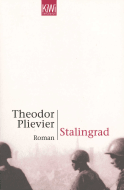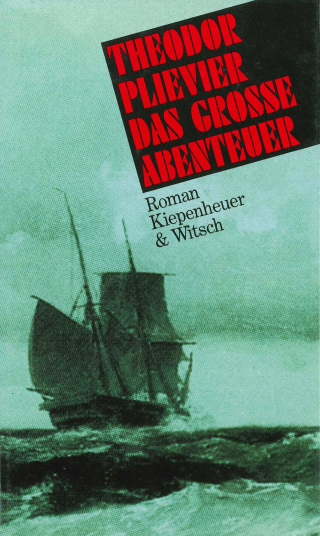
The Great Adventure
“Das große Abenteuer” follows “Des Kaisers Kuli” and “Stalingrad” as the next volume in the publication of Theodor Plievier’s oeuvre. Like many works of émigré literature, this novel is only reaching German readers now, almost 50 years after it was written. Penned in 1953, during the author’s exile in Leningrad, it was published shortly thereafter by a Dutch émigré publishing house. The book’s subject – the workers’ resistance against the Fascist dictatorship in Chile around 1930 – is historical by now, but the book itself remains unusual and exemplary as a politically expanded adventure novel. Plievier himself had experienced the “great adventure” in his youth. For years, he travelled the world as a sailor and roamed the countries of South America. His experiences are brought back to life through Klaus, the 15-year-old hero of his stories. Yet Plievier doesn’t just turn the adventure of a blind passenger who ends up in Chile where he is misused as an informer by the fascist Chief of Police even as he remains loyal to the revolutionary Atschasso into a thrilling life trial – he also transforms the adventure story into a political coming-of-age novel. Klaus sees, hears, learns about and adapts to the struggle of the resistance, and the reader participates with him in an exotic, political-awareness-awakening event. Even today, Plievier’s portrait of South America, drawn to reflect fascist Germany, hasn’t lost any of its essential topicality. This political acumen, combined with the qualities of the adventure genre, met with the approval of émigré critics. “A Marxist Jack London,” wrote Arthur Koestler. “What is exemplary is how the broad lines of the events are drawn clearly and straightforwardly in the midst of the wild vortex of the adventure; astonishing how the very same constellations and basic mechanisms that rule our gray Europe emerge all the more sharply when seen through the prism of this colorful exoticism.”
- Publisher: Kiepenheuer&Witsch
- Release: 01.01.1984
- ISBN: 978-3-462-01626-0
- 524 Pages
- Author: Theodor Plievier
- Edited by: Hans-Harald Müller

